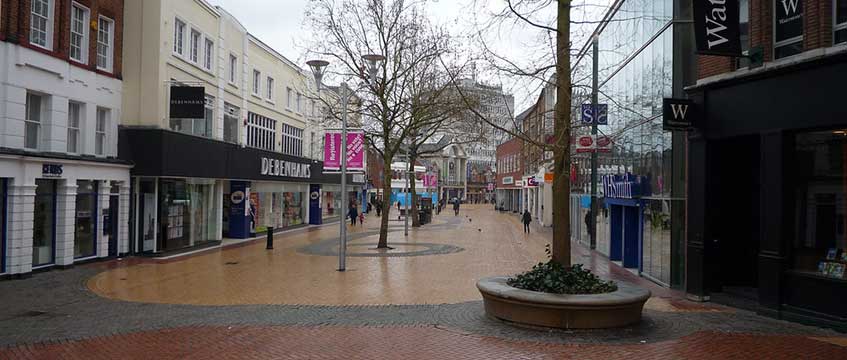Industry divided on commercial property rescue plan
Industry bodies and leaders are divided over proposals to allow commercial assets to be converted into other uses to support the high street.
RICS has called for the government to allow change of use for commercial assets to support vacant high streets, town centres and business districts.
“The whole CBD has been decanted into the suburbs,” said Tony Mulhall, RICS associate director for planning and development. “The likelihood is we are not going to reoccupy all of those spaces, either in the volume or the way they were previously used.”
Industry bodies and leaders are divided over proposals to allow commercial assets to be converted into other uses to support the high street.
RICS has called for the government to allow change of use for commercial assets to support vacant high streets, town centres and business districts.
“The whole CBD has been decanted into the suburbs,” said Tony Mulhall, RICS associate director for planning and development. “The likelihood is we are not going to reoccupy all of those spaces, either in the volume or the way they were previously used.”
Mulhall and colleagues are in favour of an easier process for changing use class, with building regulations in place to maintain standards. That would effectively allow permitted development rights to convert buildings, particularly to housing.
“If investors recognise that this was possible and easier to do, then that takes away a lot of the risk,” he said. “Government is intimating that it is minded to look at the planning system. The use classes must be one of those areas.”
Surge of offices
Before the coronavirus pandemic, communities secretary Robert Jenrick revealed plans to expand PDR to all vacant commercial sites to allow housing development.
The controversial mechanism, which bypasses local authorities’ planning teams and developer contributions, has driven a surge of offices converted into housing that critics have slammed as the “slums of the future”.
While the change itself would be relatively easy, it may have “unintended consequences”, said Richard Blyth, head of policy at the Royal Town Planning Institute.
“The moves to kickstart the housing market, by allowing offices to become flats, were temporary measures introduced in the last recession, which we still seem to have hanging around. They have had some very poor results,” said Blyth.
“It’s not the principle of changing from offices to residential that is the issue, it’s the quality of the accommodation.”
Instead of the narrow focus on permitted development rights, Blyth argued that a broader approach is needed, taking into account new methods of transport as well as housing, with education uses or even places of worship.
“When it is no longer all multinationals driving values, you have a greater range of possibilities,” says Blyth, adding that the planning process has an important role, allowing local authorities to evaluate long-term decisions and redevelopment.
“That’s doing it properly – not just creating slums of the future, but designing your repurposing of your town centre in a plan-led way that brings about good quality accommodation.”
Ensuring quality
Others argue that clear guidelines and criteria can work if used alongside zoning-based rules. In the Building Better Building Beautiful Commission’s report, published earlier this year, commission co-chair Nicholas Boys-Smith outlined proposals for a system to fast-track schemes through planning and still ensure quality.
“Flexibility of use is the silver bullet for future high streets,” said Boys-Smith. “The high street categorically does not need to die. And the Covid-19 crisis does not need to kill it.”
Town centres should ultimately offer a mix of places to work, live, meet and shop, Boys-Smith added, and that should come about through collaboration between the private and the public sector.
“Local government, the planning process and landlords should be incredibly protective of the quality of the high street and the buildings as a place in which to spend time,” said Boys-Smith. “But they should be flexible of what precise uses people put them to. Smart major landowners will look at returns from the overall street, and not just individual properties.”
To send feedback, e-mail emma.rosser@egi.co.uk or tweet @EmmaARosser or @estatesgazette











